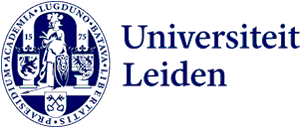
A quick call about the war in Ukraine: ‘Did Putin underestimate his opponent?’
The war in Ukraine has lasted almost two weeks now. What does Putin expect to achieve with his invasion and how big is the chance that the West will get involved? We phoned André Gerrits, professor and expert on Russia.
‘Everyone, perhaps excluding the British and American secret services but including all my colleagues and friends in both Russia and Ukraine, is extremely surprised that Putin has started a full-scale war against Ukraine,’ says Gerrits. According to him, Russia’s goals are political in nature rather than militaristic. ‘Putin has made his demands clear: the demilitarisation and denazification of Ukraine. This could include all kinds of things, but the essence is that Russia wants to be in charge of determining the future of Ukraine.
‘Stepped into his own trap’
According to Gerrits, Putin's decision to opt for a military solution to a political problem was largely thanks to a classic miscalculation on his part: underestimating the opponent. ‘Putin fell into his own trap: he does not take the state of Ukraine seriously, which is probably why he underestimated the resistance and opposition to his military action. I assume he thought: I'll go in with an overwhelming majority of soldiers, destroy Ukraine's military infrastructure and the resistance will be over quickly.’
In reality, the Russian advances seem to be progressing more slowly than the Russians had initially anticipated, which puts Putin in a difficult position. ‘Putin has constantly emphasised that he has nothing against Ukrainians. Furthermore, he says that the Russians and Ukrainians are a jednyj narod, one people. You can hardly bomb your ‘own people’ back to the Stone Age, but without massive military force against cities and thus civilians, it is unlikely that Russia will bring the Ukrainian government to its knees.’
Stepping up the fight
Gerrits suspects that Putin will eventually choose to further intensify the military violence. ‘I assume that he still thinks he can achieve his political goals with military means. This means that Putin and his supporters will probably see no other option but to step up the fight even more.’
Western intervention
This intensification of the struggle might lead to greater involvement of the West, Gerrits suspects. At the moment many uncertain factors are interacting with each other, but everyone knows that powers often insert themselves into a war with no intentions to do so. First, they supply weapons, then advisers, then those advisers have to be protected and so gradually these powers fall deeper and deeper into a conflict.’
Western public opinion plays a role in the decision to take part in a war as well. ‘If cities are being destroyed, sentiment can rapidly change into as sense of: “we can no longer remain idle.” What is undesirable or impossible now, may look very different in a week or two, following developments on the battlefield. In short, it is of the utmost importance to avoid further escalation of the war.’ The only issue is that this solution is likely the least appealing to the one person who has the most influence on it: Vladimir Putin.
